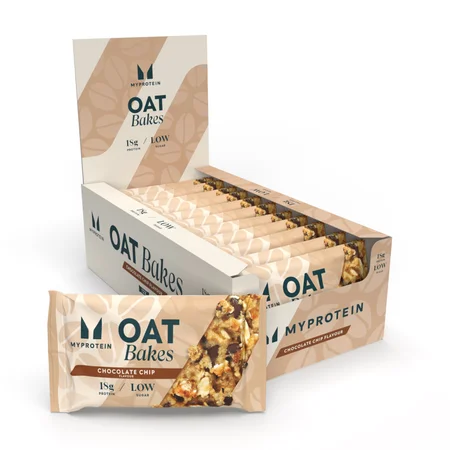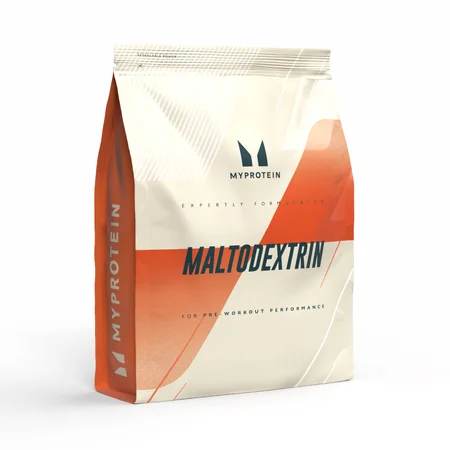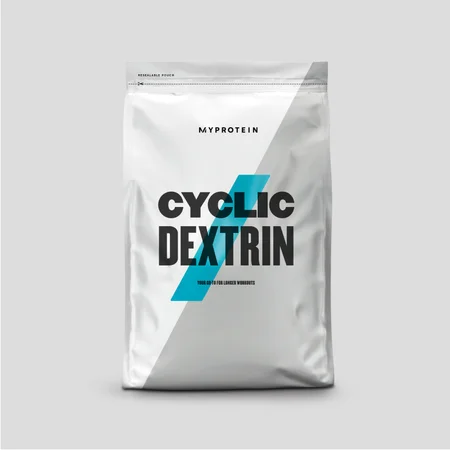Why are Carbohydrates Important?
Carbohydrates are the most common source of energy for your body, and therefore should make up between 55-75% of your dietary intake. Carbohydrates are also scientifically proven to contribute to the recovery of normal muscle function after highly intensive or long-lasting physical exercise, making this food-group ideal for post-workout recovery1 — which will help to push your fitness progress.
How to Use Carbohydrate Supplements
We’ve got a range of carbohydrate supplements that can easily fit into any routine — no matter how hectic your schedule. For example, our Recovery Gel Elite and Energy Gel Elite sachets can simply be enjoyed straight from the packet for an instant hit of carbohydrates, along with essential electrolytes and vitamins. This makes them an ideal intra-workout supplement, as you barely have to stop what you’re doing to take them.
Alternatively, we offer powders such as 100% Waxy Maize Starch and 100% Maltodextrin Carbs which are ideal for providing a quick boost of energy — all you have to do is add a scoop to water or your regular protein shake to refuel after training.1
Our High-Carb Foods
We’ve got a great range of high-quality, high-carb foods for you to get your teeth into.
Our Protein Flapjack is a classic snack that’s both packed with protein and crammed with carbs — the ideal combination for muscle recovery.1
Another delicious option is our Oats & Whey Protein Bar, which combines 22g of protein with 38g of carbs, to help you fuel your day and recover after a tough workout.1 Plus, they come in irresistible flavours such as Salted Caramel and Real Raspberry.
We have Protein Granola which is brimming with soy protein, alongside 19g carbs per serving, and comes in indulgent Chocolate flavour.
Still not sure which carbohydrate supplement is for you? Check out our breakdown of the best carbohydrates.
FAQs
Are carbohydrates good for you?
Carbohydrates are the body's primary energy source and forms of carbohydrate, such as fibre and wholegrains, can be beneficial to your health. Even sugar has its place and when used around exercise, it can be beneficial for both performance and recovery!
Are carbohydrates essential?
Carbohydrates are not essential as the body can convert other nutrients into carbohydrates. However, that does not necessarily mean that dietary intake would not be optimal.
How do carbohydrates contribute to muscle growth?
They play important roles in optimising performance and recovery whilst providing the energy we need to fuel muscle growth.
Can carbohydrates help muscle recovery?
Yes, carbohydrates play a pretty important role in muscle recovery. Not only do they provide the energy needed to fuel adaptation, but may also help reduce muscle protein breakdown post-exercise too!
How many carbs should I eat each day?
That depends on your whole diet and your preference for carbohydrates over fats. Generally speaking, a diet is broken up into; protein 20 - 30%, carbohydrate 30 - 50% and fats 20 - 30% would be a great starting point and you can tinker with that structure as you become more aware of what helps you function at your best.
How many carbs should I eat to build muscle?
There is no one size fits all recommendation, but focusing on having them around training can help as can having enough in your diet that it pushes you into a slight calorie surplus to fuel muscle growth.
How many carbs should I eat to lose weight?
There is no magic figure for weight loss, it would simply be a number of carbohydrates that means you're in a sensible calorie deficit. We'd recommend on the higher side as recovery and performance nutrition becomes arguably more important in a calorie deficit.
Do carbs cause weight gain?
No, only a calorie surplus will cause weight gain. If you've been carbohydrate-restricted and add them in you may experience some weight gain as your muscles replenish their stores of carbohydrate (glycogen).
1. Carbohydrates contribute to the recovery of normal muscle function (contraction) after highly intensive and/or long-lasting physical exercise leading to muscle fatigue and the depletion of glycogen stores in skeletal muscle. This beneficial effect is obtained with the consumption of carbohydrates, from all sources, at a total intake of 4g per kg body weight, at doses, within the first 4 hours, and no later than 6 hours, following highly intensive and/or long-lasting physical exercise leading to muscle fatigue and the depletion of glycogen stores in skeletal muscle.












